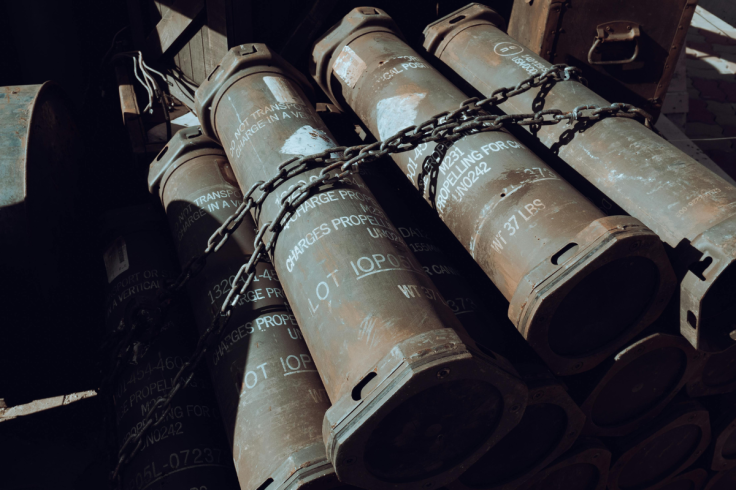Can Trump's Brokered Truce Halt the Israel-Iran Conflict After 12 Days?
Trump's ceasefire, announced on 24 June 2025, offers a glimmer of hope after a 12-day war that killed nearly 1,000 people and displaced thousands.

US President Donald Trump on 23 June 2025 announced a "complete and total" ceasefire between Israel and Iran, aiming to end a 12-day conflict that saw missile exchanges, airstrikes, and significant casualties.
The deal, brokered with Qatar's mediation, follows intense US and Israeli strikes on Iran's nuclear facilities, prompting Iranian retaliation.
With Israel claiming success in degrading Iran's nuclear capabilities and Iran asserting a "successful" response, both sides have reasons to pause.
But can this phased 24-hour truce hold, or will deep-seated tensions unravel it? Here's what's at stake.
Navigate a Fragile Ceasefire
Trump's plan, outlined on Truth Social, stipulates that Iran halts attacks at midnight ET on 24 June 2025, followed by Israel 12 hours later, with the war officially ending after 24 hours.
Fox News reported on 24 June 2025 that Trump hailed the deal as a victory, claiming it prevented a prolonged Middle East conflict.
Israeli Prime Minister Benjamin Netanyahu confirmed Israel's agreement, stating it achieved its goal of neutralising Iran's nuclear and missile threats but warned of "forceful" responses to violations.
Iran's Foreign Minister Abbas Araghchi, however, denied a formal agreement, stating on X that Iran would stop attacks if Israel ceased by 4 am Tehran time, though he noted operations continued until the deadline.
Trump's Reaction To Ongoing Violations
Both Israel and Iran have accused each other of breaching the ceasefire, which began with Iran halting attacks at midnight ET and Israel at 12:00 PM ET on June 24, 2025.
Israel reported intercepting missiles launched from Iran after the ceasefire started, while Iran denies any post-deadline attacks, claiming compliance since 2:00 AM ET.
Israeli strikes in Karaj and Gilan killed 16, including Revolutionary Guard members and civilians, while an Iranian missile strike on Beer Sheva before the ceasefire killed five.
Trump expressed frustration, stating both sides violated the truce, particularly criticizing Israel for post-ceasefire strikes.
He posted on Truth Social, warning Israel against further attacks.
Leverage Qatar's Mediation Role
Qatar's pivotal role in securing the truce underscores its growing diplomatic influence.
A senior White House official told Reuters that Qatar's Prime Minister, Sheikh Mohammed bin Abdulrahman bin Jassim Al-Thani, persuaded Iran after Trump convinced Israel, despite Iran's earlier missile strike on Qatar's Al Udeid Air Base.
Qatar's foreign ministry confirmed no casualties in the attack, which Iran telegraphed to avoid escalation.
On X, sentiment reflects cautious optimism, with some users praising Trump's diplomacy while others critised and mocked his stand.The ceasefire's success hinges on Qatar's ability to maintain trust between two adversaries with a history of "shadow" conflicts, now escalated into open warfare.
Address Iran's Nuclear Ambitions
The conflict's root lies in Israel's 13 June 2025 strikes on Iran's nuclear sites, Fordow, Natanz, and Isfahan, followed by US bombings, which Trump claimed "obliterated" Iran's nuclear program.
Israel alleged Iran was racing toward a nuclear bomb, though US intelligence in 2025 found no evidence of an active weapons program.
The BBC noted on 24 June 2025 that verifying Iran's nuclear status requires ground inspections, raising questions about hidden sites or materials.
Trump's push for a diplomatic deal to dismantle Iran's nuclear capabilities permanently faces hurdles, as his 2018 withdrawal from the Joint Comprehensive Plan of Action (JCPOA) deepened Tehran's distrust.
With 950 deaths in Iran and 24 in Israel, both sides claim victory but face domestic pressure to avoid further losses.
Secure Lasting Peace—or Risk Collapse
Trump's ceasefire, announced on 24 June 2025, offers a glimmer of hope after a 12-day war that killed nearly 1,000 people and displaced thousands.
Qatar's mediation and both sides' exhaustion provide a foundation, but Iran's denial of a formal agreement and ongoing strikes signal fragility.
The truce's success depends on halting violations and addressing Iran's nuclear program through diplomacy, not force.
With global markets stabilising, oil prices dropped 7.2% to £54.81 ($68.51) per barrel, and regional relief palpable, the world watches closely.
Trump's bold diplomacy may have paused the conflict, but without trust between Israel and Iran, peace remains elusive, only time will tell if this truce holds firm.
© Copyright IBTimes 2025. All rights reserved.





















